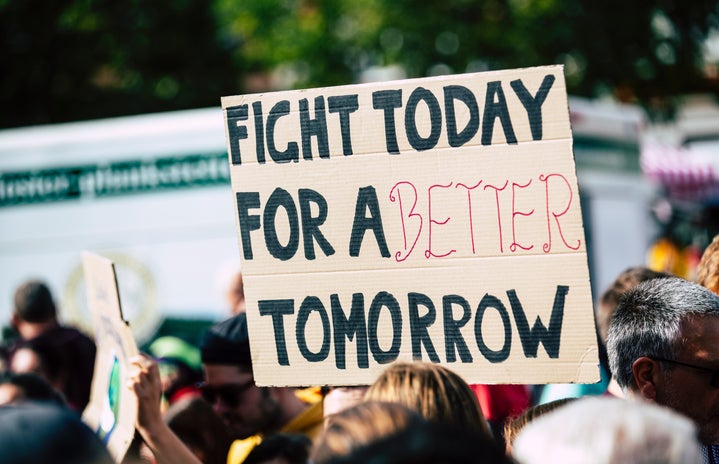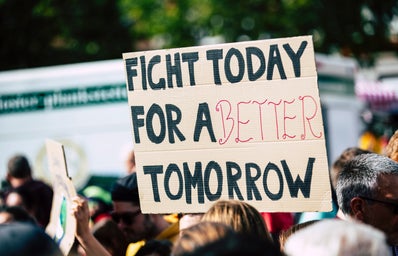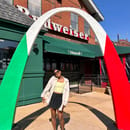Recent violence that has taken place in Gaza has brought more attention to the long-standing conflict between Israel and Palestine. To even begin discussing this conflict it is important to acknowledge that this is a very sensitive topic, and there are many factors that play into it.
To provide some background, Gaza is one of two Palestinian territories. Gaza is currently controlled by Hamas, an Islamist organization, and they have been in control since 2006. Gaza has been isolated due to the Israeli air, naval and land blockade as well as the Egyptian land blockade since Hamas rose to power. This violence between Hamas and Israel has been ongoing and has caught many innocent lives in the crossfire, a majority being Palestinians. The death toll in both Israel and Gaza is astounding. Reports show that over 2,450 people have been killed in Gaza, 9,200 have been left injured and 1,400 people have been killed and 3,500 have been wounded in Israel.
It is also important to note that the current living conditions in Gaza are risking the lives of civilians. While living conditions have not always been the best in Gaza, a humanitarian crisis is rapidly rising due to the tightening blockades from Israel as well as recent airstrikes. Israeli forces issued orders for over 1-million Palestinians to evacuate north Gaza within 24 hours during ongoing airstrikes which have resulted due to the militant rulers of Hamas’s attack on Israel.
Just one day later, Israeli forces began entering Gaza in an effort to clear the area. Unfortunately, due to the current airstrikes on Gaza by Israel, water, food, fuel and electricity have been cut off, leaving Palestinians with no safe zone within Gaza. In addition to the lack of resources that Palestinians now have access to, Rafah, the only border crossing that was left partially open to Gaza, has now been closed due to damage from the airstrikes . This evacuation order placed by Israel has also affected 22 hospitals in North Gaza that are currently treating over 2000 patients. The lives of many critically ill patients and severely injured citizens now hang in the balance. In addition, civilians that are now seeking refuge at hospitals to keep their families safe are also in danger.
The reality is that violence and death are affecting many innocent civilians. Palestinians are mainly affected by the violence in Gaza because they make up much of the population. Violence has reached an all-time high. To put this into context, United Nations experts compare this to the 1948 Nakba and the 1967 Naksa. The Nakba refers to the mass displacement and dispossession of Palestinians during the 1948 Arab-Israeli war. The Naksa refers to the Israeli invasion and occupation of the Palestinian West Bank and Gaza Strip, Egyptian Sinai peninsula, and Syrian Golan Heights in June 1967.
Experts note that Israeli public officials have openly advocated for another Nakba, which led to over 750,000 Palestinians being expelled from their homes and lands during the hostilities that led to the establishment of the State of Israel. The Naksa led to Israel’s occupation of the West Bank and the Gaza Strip which displaced 350,000 Palestinians. To experts it seems as though Israel is carrying out a mass ethnic cleansing of Palestinians in the name of self-defense.
With a conflict as sensitive and multi-faceted as this one, it is important to emphasize that individuals who associate with the cultures and religions of Palestine and Israel are not at fault. Violence is widespread in Gaza right now and many people are misinformed on the facts of what has taken place. Many people have used this event as an opportunity to spread anti-Muslim and anti-Semitic speech and violence in local communities. For example, a six-year-old boy named Wadea Al Fayoume was recently stabbed and killed in Illinois because he was Muslim. While this conflict may be happening thousands of miles away from us, it is affecting American communities whether people are victims of violent hate crimes or have loved ones in Gaza who are fighting for basic necessities.
For those who have no connection to anything taking place between Israel and Palestine, it is easy to just place blame on either side. This issue is not that simple. It’s important to understand that while violence and death has affected both Palestine and Israel, Palestinians have been affected by this at a much higher rate. Over the last 15 years, airstrikes and blockades are mainly affecting those who live on Palestinian soil and are putting more Palestinians at risk due to the current lack of resources in Gaza every day. While Israelis have also been victims to the violence, it is important to note that Palestinians are being killed in such large amounts that this can be characterized as a genocide.
With the violence in Gaza at its peak, it is necessary to work as swiftly as possible to ensure that both Palestinians and Israelis can have peace, freedom and equality. Not only is it important to stay as informed as possible on the situation, but there are also plenty of organizations that are working to provide aid to civilians that have been caught in the crossfire. Organizations like Doctors Without Borders, International Committee of the Red Cross, Alliance for Middle East Peace and Palestine Children’s Relief Fund are currently taking donations to provide resources and safety for civilians being harmed by recent violence in Gaza.
It is also important to write to our elected officials in the U.S. government to stop funding current airstrikes on Gaza from Israel and instead put that money towards providing aid and resources for those in Gaza. Since 1948, there has been so much violence that has affected our Palestinian brothers and sisters. Providing aid for those in Gaza to protect Palestinians but also any other civilians that have been caught in the crossfire, regardless of ethnicity or culture, is a necessity to foster peace in national and local communities.


